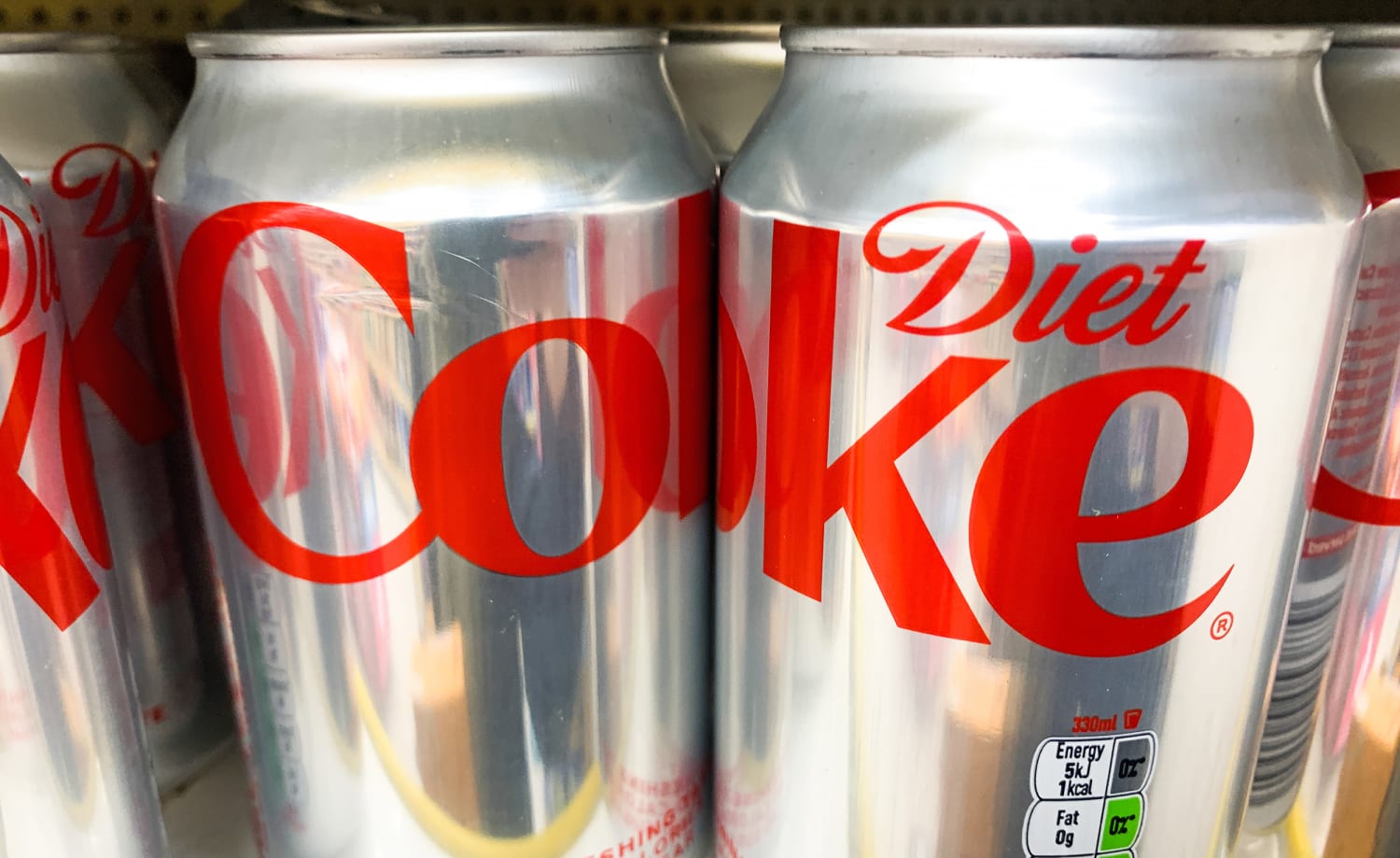
Understanding Diet Coke Nutrition for Better Health in 2025
As more people are becoming health-conscious, understanding the nutritional content of popular beverages like Diet Coke is essential. Diet Coke has become a staple choice for many who seek a low-calorie alternative to sugary sodas. With a complex flavor profile and a market presence that spans decades, it's vital to dive into its ingredients, caffeine content, and the associated health benefits and risks. This article will help you navigate the complexities of Diet Coke nutrition and its place in modern diets, particularly for those mindful of weight management and dietary guidelines.

Benefits of incorporating Diet Coke into your diet include the enjoyment of a carbonated beverage without the added sugars and calories that typically accompany regular sodas. This can significantly help with weight loss plans and maintaining lower overall caloric intake. However, it's critical to weigh these benefits against potential health risks such as the effects of artificial sweeteners and caffeine. In this article, we will cover:
- The nutritional breakdown of Diet Coke, including calories, sugar content, and ingredients.
- Dietary recommendations and how Diet Coke fits into various dietary plans.
- An exploration of the health benefits and risks associated with regular consumption.
- A comparison with regular Coca-Cola and other popular beverages.
- Consumer experiences and reviews for a deeper understanding of Diet Coke's reception.
Let's begin by exploring Diet Coke nutrition facts that unveil its dietary value.
Comprehensive Breakdown of Diet Coke Nutrition Facts
Diet Coke Calories and Nutritional Value
Understanding the caloric content of Diet Coke is crucial for health-conscious individuals. A standard 12 oz serving of Diet Coke contains 0 calories, making it an attractive option for those following a diet plan aimed at weight loss. The absence of sugar means that consumers do not have to worry about the sugar-induced spikes in calorie intake. Instead, the drink's zero-calorie status allows for guilt-free indulgence without compromising dietary goals. However, it is paramount to consider that, despite the lack of calories, long-term effects of artificial sweeteners may still pose health questions.
Diet Coke Ingredients and Ingredients Analysis
Diet Coke is primarily composed of carbonated water, caramel color, aspartame (an artificial sweetener), caffeine, phosphoric acid, potassium benzoate, and citric acid. Each of these ingredients plays a significant role in creating Diet Coke's flavor profile and preserving its shelf life. While these ingredients allow for a refreshing experience, the presence of artificial sweeteners has raised health concerns. Research indicates that, although aspartame and similar sweeteners are deemed safe by regulatory authorities, some individuals report negative reactions.
Diet Coke Sugar-Free Characteristics
The sugar-free nature of Diet Coke makes it an appealing alternative for those managing their sugar intake or monitoring diabetes. Unlike standard sodas that can elevate blood sugar levels, Diet Coke avoids added sugars entirely. This aspect opens up dietary options for consumers who are sensitive to sugar but still enjoy the taste of carbonated beverages. However, it's important to monitor overall consumption of artificial sweeteners in alignment with dietary recommendations for sugar alternatives.
Diet Coke Caffeine Content and Its Effects
Diet Coke contains around 46 mg of caffeine per 12 oz serving, which is lower than a standard cup of coffee. Caffeine can improve alertness and energy levels, impacting metabolism. However, excessive caffeine intake may lead to side effects such as anxiety and insomnia. Understanding individual tolerance to caffeine is important when incorporating Diet Coke into your daily routine, especially for vulnerable populations such as those with certain health conditions.
Health Benefits and Risks of Diet Coke Consumption
Diet Coke Health Benefits You Should Know
One of the most significant benefits of Diet Coke is its role in aiding weight management. With its calorie-free branding, it can satisfy sweet cravings without the caloric load of regular sodas. Furthermore, having a sugar-free beverage option allows dieters to enjoy a soda without derailing their nutrition plans. As a couple of studies suggest, substituting sugary drinks with zero-calorie options like Diet Coke may contribute positively to overall health performance.
Risks Associated with Diet Coke
Despite its benefits, Diet Coke does come with potential risks. Some studies suggest correlations between high consumption of diet sodas and health issues, such as metabolic syndrome and cardiovascular problems. Additionally, there are concerns involving the long-term impacts of artificial sweeteners on gut health and their potential relationship with body weight regulation. Before making Diet Coke a regular part of your routine, it's advisable to consult dietary guidelines and health professionals.
Diet Coke vs. Regular Coke: A Comparative Perspective
When comparing Diet Coke to regular Coca-Cola, the differences become evident. Regular Coke, high in sugar, can contribute significantly to calorie setbacks and is associated with various health risks such as weight gain and diabetes. In contrast, Diet Coke's zero-calorie profile provides a beneficial alternative. However, the inherent risks related to artificial sweeteners must also be considered. This comparison emphasizes the importance of moderation and understanding personal health implications before deciding on beverage choices.
Understanding Diet Coke as a Soda Alternative
As consumers look for healthier alternatives, Diet Coke stands out among other fizzy drinks and carbonated options. Its sugar-free formulation makes it an attractive choice for health-conscious individuals searching for enjoyment without the excess calories. However, being aware of the risks, including over-reliance on artificial sweeteners, remains important when exploring beverage alternatives. A balanced approach—including both Diet Coke and healthier hydration options—can lead to better dietary outcomes.

Integrating Diet Coke into a Healthy Diet Plan
Diet Coke Dietary Recommendations
When implementing Diet Coke into your diet, moderation is key. Experts recommend limiting consumption to a few servings a week, allowing for calorie management without overpowering your nutritional regimen. Additionally, consider pairing Diet Coke with healthier meals instead of consuming it on its own to enhance the beverage's place in your overall dietary plan. Strategies to minimize health risks can include balancing Diet Coke with nutrient-dense foods and beverages that offer vital vitamins and minerals.
Diet Coke and Weight Management Strategies
Utilizing Diet Coke as part of a weight management plan involves understanding its role as a tool rather than a solution. Integrating it effectively can make meal experiences more enjoyable without adding calories, allowing for a more sustainable approach to dieting. For those following strict dietary guidelines, understanding where Diet Coke fits within these confines is crucial to ensure it complements a healthy lifestyle while supporting weight management goals.
Diet Coke Usage in Meal Prep
Diet Coke can also be used creatively in meal prep and cooking, allowing home chefs to develop unique recipes that incorporate its flavor without added sugars. From marinades to dressings, Diet Coke can add excitement to meals. When considering its use, moderation remains essential, emphasizing innovative ways of enjoying flavors without over-reliance on sodas.
Insights from Consumer Reviews and Experiences
Diet Coke Customer Reviews: What Are They Saying?
Customer opinions about Diet Coke are varied, reflecting personal dietary preferences and experiences. Common sentiments include appreciation for its refreshing taste and lack of calories. However, some consumers express concerns regarding the aftertaste from artificial sweeteners. This indicates a growing need for companies to expand flavor options or improve ingredient formulations to satisfy diverse consumer preferences while maintaining the brand's ethos.
The Future of Diet Coke and Beverage Choices
As consumer preferences evolve, Diet Coke's market strategies may need to adapt accordingly. Trends indicate a possible increase in demand for naturally derived sweeteners and flavors, pushing brands toward innovative recipes and formulations. Understanding beverage marketing strategies and how they influence consumer choices in health-conscious markets will be essential for the brand’s growth. A commitment to addressing public health discussions surrounding diet drinks can further enhance consumer confidence.
Frequently Asked Questions (Q&A) on Diet Coke
What are the key ingredients in Diet Coke?
Diet Coke primarily includes carbonated water, caramel color, aspartame, caffeine, phosphoric acid, potassium benzoate, and citric acid. These ingredients create the distinct taste and texture we associate with this popular drink.
Is Diet Coke safe for diabetes?
Diet Coke's sugar-free content makes it a popular choice for those managing diabetes. However, monitoring overall consumption of artificial sweeteners is recommended for a balanced diet.
How does Diet Coke affect hydration?
While Diet Coke does provide hydration, the caffeine content can have a mild diuretic effect. It’s essential to balance intake with water and other hydrating beverages for effective hydration strategies.
What is the recommended serving size for Diet Coke?
A standard serving size of Diet Coke is typically 12 oz. Limiting consumption to this size can help manage intake effectively, as larger quantities can lead to potential health risks.
Are there any known health risks associated with Diet Coke?
Potential health risks include over-consumption of artificial sweeteners, which can have adverse effects on gut health and weight management. It's crucial to consume Diet Coke in moderation and consider overall dietary habits.